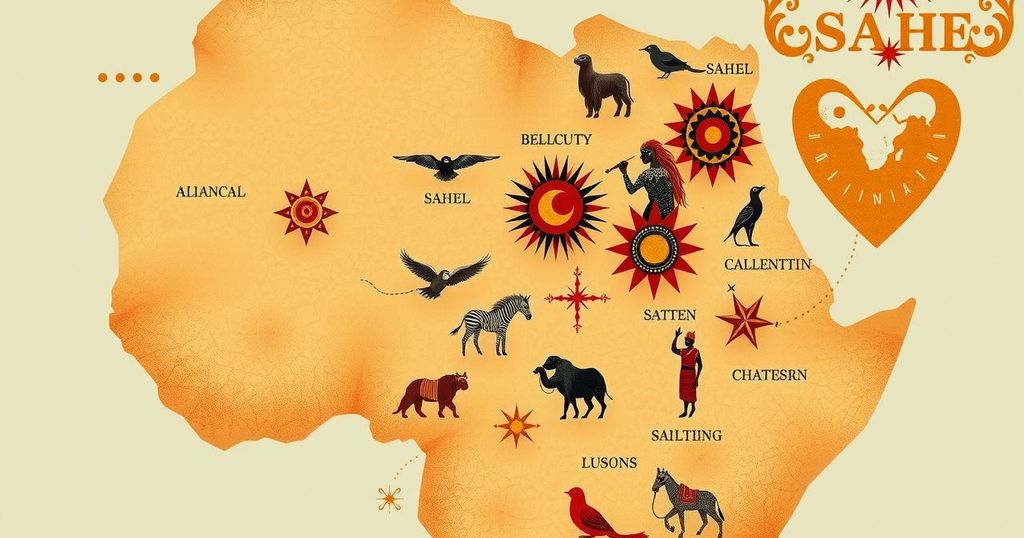Togo Pursues Membership in the Alliance of Sahel States

Togo seeks membership in the Alliance of Sahel States, aiming to enhance regional cooperation, trade, and military collaboration with Mali, Burkina Faso, and Niger. This move may divert focus from domestic tensions and solidify Togo’s strategic position amidst shifting allegiances away from the West. However, it raises concerns about its relationship with ECOWAS and internal governance issues.
Togo is actively pursuing membership in the Alliance of Sahel States (AES), which comprises junta-led nations such as Mali, Burkina Faso, and Niger. This alliance aims for closer integration, originally formed as a defense pact in 2023. Togo’s Foreign Minister, Robert Dussey, recently indicated on social media that joining the AES is a strategic consideration that could enhance regional cooperation and provide crucial port access for landlocked countries.
Access to a reliable port is vital for landlocked nations affected by jihadist violence, which currently promise greater sovereignty. With tensions rising against neighboring countries like Ivory Coast and Benin for perceived allegiance to Western powers, Mali, Niger, and Burkina now rely on Togo’s port in Lomé, as well as Ghana’s Tema port. Analysts suggest that Togo’s potential accession to the AES could boost trade opportunities and strengthen military collaboration, particularly in intelligence sharing against jihadist threats.
Jihadist activity has escalated in northern Togo, particularly along the border with Burkina Faso, where groups have perpetrated severe attacks. The military leaders of the AES face significant challenges in combating this violence since assuming power between 2020 and 2023, and they have announced plans to establish a joint force of 5,000 troops. Togo supports the AES’ ambition to reclaim sovereignty, aligning with the regional shift away from traditional partnerships with France and the West towards agreements with Russia and alternative power structures.
By engaging with the AES, Togo appears to be embracing a pan-African vision encouraging nations to unite. Togolese President Faure Gnassingbé’s strategy relies on promoting pan-African values, which has gained traction within public opinion. The militaristic governance of the Sahel nations has postponed elections, extending political transitions to several years, contributing to regional instability.
Togo’s approach to aligning with the AES could serve as a strategy to diminish opposition and divert attention from domestic issues. Critics argue that changes in governance, including a newly adopted constitution, have raised concerns about an extended hold on power for President Gnassingbé. Opposition figures warn that joining the AES may shield the regime from ECOWAS’s standards concerning democracy and human rights.
The relationship between Togo and the AES remains cordial, with Togo previously acting as a mediator between ECOWAS and military governments. Some experts propose that Togo may navigate a dual membership in both ECOWAS and the AES, emphasizing that alliances resemble partnerships rather than rigid commitments. Nonetheless, the growing proximity to the AES might threaten ECOWAS’ cohesion, potentially exacerbating its already complex challenges.
In summary, Togo’s interest in joining the Alliance of Sahel States indicates a strategic shift towards regional solidarity among junta-led nations, aiming to enhance trade and military cooperation. While this move forges new partnerships, it raises questions regarding Togo’s relationship with ECOWAS and the implications for its internal politics and sovereignty. The evolving dynamics in West Africa warrant close attention as Togo navigates these complex affiliations and their consequences.
Original Source: thedefensepost.com








